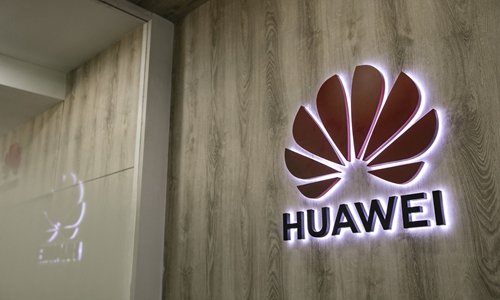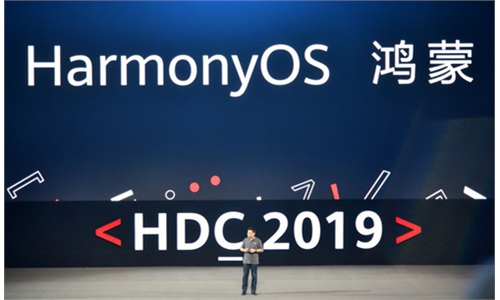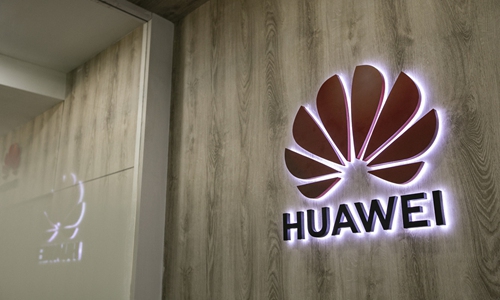SOURCE / INDUSTRIES
Huawei reaffirms commitment to Europe amid uncertainties in 5G policy

Huawei. Photo: VCG
Chinese tech giant Huawei reaffirmed its commitment to European market during the annual European Innovation Day held in Germany online on Thursday, vowing to strengthen cooperation with local firms, and boost the development of small and medium-sized enterprises (SMEs) through its technological strength.
Representatives from the European Parliament, SME associations, and local companies joined the event, which focused on European Mittelstand - the German word for SMEs - and how to strengthen their innovation.
"SMEs are the backbone of the European economy," David Li, president of Huawei West Europe, said in opening remarks on Thursday. "During the pandemic, the need to go digital has become even more pressing than ever. We want to use ICT to help European SMEs stay competitive. We want to help them go global."
It's the second round of this year's European Innovation Day event, and also the 20th anniversary of Huawei in Europe and its long-standing commitment to the digital development of the continent as part of the company's "In Europe for Europe" strategy.
This year's European Innovation Day comes as Huawei faces a challenging business environment in Europe, as the Trump administration has intensified its pressure on allies in Europe over the past year to rule the Chinese equipment provider out of their 5G rollouts.
Reuters reported on November 21 that Germany would need to reach a consensus within the government that a telecoms vendor poses a national security threat in order to exclude its equipment from national 5G networks - a move that will be crucial in determining whether Huawei can stay in Germany.
In October, Sweden banned Huawei equipment from its 5G network, citing so-called national security risks, and it asked companies taking part in 5G spectrum auctions to remove components sourced from the company by January 1, 2025.
The UK government toughened a ban on Huawei on Monday, saying that British telecommunications firms must not install new Huawei 5G kit after September 2021, as part of a plan to purge the company's equipment from high-speed mobile networks.
Although expectations had previously been high that the incoming Biden administration could make a difference in the US' extremely tough stance on China, experts cautioned uncertainties exist, as it may not be easy for the US to change its crackdown strategy on the Chinese technology industry.
"There will be room for talks concerning whether Europe can continue to use Huawei equipment - as using the firm's equipment is in line with the interests and demands of European countries and local operators," He Weiwen, a former senior trade official and an executive council member of the China Society for World Trade Organization Studies, told the Global Times.
Representatives from Huawei also took the opportunity to call for an open and fair business environment to support joint innovation.
In 2019, Huawei contributed 16.4 billion euros ($19.5 billion) to Europe's GDP and supported 224,300 jobs, according to a report by research agency Oxford Economics.
The report, titled The Economic Impact of Huawei, also found that the company generated 6.6 billion euros in tax revenues for European authorities during 2019.



